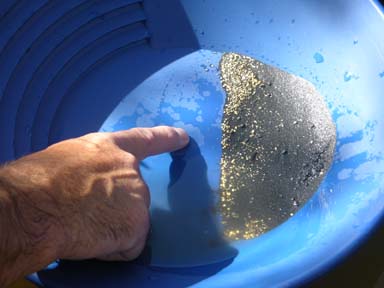We all know that genetics and epigenetics play a huge role in impacting what type of diet, nutrition, supplementation, and training will be the most effective for each of us personally. I’ve been fascinated with genetic testing for quite a while, and recently decided to take the plunge with 23andMe to see just what my genetics might reveal. I’ve been very blessed with near perfect health my entire life and very healthy kids. So unlike many people who are trying to diagnose various ailments or understand if they are carriers for certain genes, my goals with the genetic testing were simply to try and go from 99% fitness and health to 110%. Once I placed the order, 23andMe promptly sent out a saliva collection kit which I completed and returned to them immediately. After that it was about a six week wait until the results were processed and made available to me on-lien. When the e-mail first arrived with my results, I was extremely excited to dig in and find the gold nugget that would explain everything and allow me to make the one or two tweaks to my diet, supplementation, and training that would take me to that ever so evasive 110%. Unfortunately I quickly found that it isn’t quite that easy. The results from 23andMe seemed fairly generic, at least in my case. They confirmed I’m of Northern European decent, have a higher percentage of Neanderthal than 70% of the population (I guess that explains my height and maybe my posture issues, am a slow metabolizer of caffeine, don’t have the muscle fiber makeup to be a sprinter, am more inclined to be an endurance athlete, I don’t have the gene to be a deep sleeper, my ring finger is longer than my index finger, and on and on. Needless to say, the 23andMe results did not deliver the gold nugget I was looking for, but no need to stop there. I soon discovered there are lots of new startup companies that will take the raw data and analyze it with a more specific focus on identifying opportunities to improve nutrition and athletic performance. A couple of the sites I used included the following:
- Promethease – loading your data to this site only costs $5 and it provides a ton (read overwhelming) amount of data. They have basically tried to collect every study performed on genes and they link it to each of your genes.
- Athletigen – this site is free and is specifically focused on providing reports that tell you how your genes impact your different athletic abilities. Interesting and user friendly, but I didn’t get any big gems of data from this
- Genetic Genie – this site focuses specifically on your Methylation related genes and I believe it is definitely worth the small cost to check it out. Specifically mutations on the MTHFR gene have been a big topic of discussion, looking at the impacts this can have on mental state and the potential benefits of supplementing with the right forms of B vitamins.
- Rockstar Research – I can’t vouch for how much hard core science is behind this one, but it provided a very simple flow diagram to assess whether you are a carbohydrate or fat burner and whether high intensity or steady cardio will help you burn more fat. In my case, I am more of a carbohydrate burner and need high intensity for optimal weight loss. This seems to be fairly accurate based on my experience.
DNAFIT is one that looks very intriguing and probably goes deeper than any of the above, but also costs more money that I’m willing to fork out right now. However, if you do your initial genetic testing with them it is a great value and more optimized to deliver performance improvement recommendations than 23andme. At this point, I think that the methylation information is probably the most interesting and useful. Based on my results I’ve started supplementing with Methyl Guard Plus from Thorne Research. (side note – if you are interested in supplementation, Thorne Research is hands down one of the most legitimate brands in the industry) I’ve found this to definitely give me a boost in concentration, energy, and mood. I would be very cautious about recommending genetic testing to anyone who might have hypochondriac type traits. The information is overwhelming to the lay person. There are thousands of technical terms to try and comprehend. For example, if you’re heterozygous (of the two genes you inherit one is mutated the other is fine) I’m not certain there is anyway of knowing which gene is dominating. It also takes some research and knowledge to understand what percentage of the population has a given mutation and hence whether it is rare or common. Additionally there can be mutations that are actually positive for your health and longevity, so you can’t just assume that any mutation is bad. Some up regulate and some down regulate. By now you probably get the idea, lots to sort out, and without a medical/scientific background it can quickly become overwhelming Some interesting but not altogether useful cocktail party tidbits that I found out:
- I do not have the empathy gene (my wife could have easily confirmed that one)
- I have the warrior gene (COMT) which technically means I clear dopamine quickly and should perform well in high stress situations.
- I have the novelty seeking gene (probably not a surprise – but gives me a good explanation for why I do what I do)
I do think that we are just at the tip of the iceberg with the volume of data that is now being generated with gene testing, and as the data and analytics evolves there is certain to be some really fascinating and more direct and conclusive information that will emerge. I do also think that gene results combined with a good blood panel could be very useful. If certain markers are off you can correlate those to the related genes and if you have mutations, then there is some good explanation that may present a strong case for certain supplementation, diet and lifestyle changes, etc. On top of all this, there is more and more research pointing out that epigenetic factors play a potentially more signifiant role than genes themselves. Just one more layer to work out. If you really want to dive deep on the epigenetic world check out PH360.me This company doesn’t do gene testing, rather has you complete a detailed survey and take very specific measurements (finger length, etc..) which they use to correlate both your genes and epigenetic factors. Based on this, their programs suggest very specific foods to be eaten, and this changes weekly with the seasons etc.. It also goes as far as to recommend when you should take vacations, what type of environment you should take them in, etc.. It reminds me a lot of ancient eastern medicine such as Aryveda and Chinese Medicine, only with 10 years of science behind it. I haven’t forked over the cash and time to take on this level of experimenting, but it does seem fascinating to me. I’ve always been amazed at how accurate various aspects of Aryuvidic medicine can be. In summary, I’m glad I did the testing and although I haven’t found gold yet, I’m not giving up. I’m really excited about the explosion of research and tools to make sense out of the raw data. I believe we are just at the tip of the iceberg on what will be possible and I’m optimistic I’ll continue to find little nuggets that allow me to continue refining my nutrition, supplementation, and training for both optimal performance and longevity.



